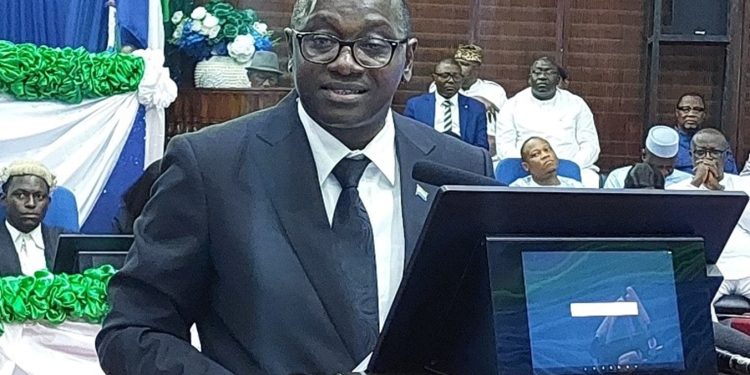The 2025 budget reflects a critical juncture in Sierra Leone’s pursuit of economic and social rejuvenation. Its ambitious framework seeks to tackle foundational challenges while promoting growth, resilience, and inclusivity. However, the successful realization of these goals hinges on unwavering dedication and collaboration among all stakeholders.
The focus on macroeconomic stability is pivotal for fostering investor confidence and ensuring sustainable development. By targeting a single-digit inflation rate and narrowing the fiscal deficit, the government has signaled its intent to create an environment conducive to business and innovation. Achieving these targets, however, requires disciplined fiscal management, efficient resource allocation, and robust policy execution.
The emphasis on revenue mobilization is commendable, particularly with the National Revenue Authority surpassing its 2024 targets—a testament to improved tax system governance. Expanding the tax base and tackling non-compliance will be critical in securing resources to fund national priorities, including healthcare, education, and infrastructure. Sustained progress will depend on deepened reforms and an unwavering commitment to addressing leakages and inefficiencies.
Agriculture remains the cornerstone of Sierra Leone’s economy, and the 2025 budget reaffirms its importance by prioritizing food security and productivity. Reducing reliance on imports while fostering job creation and empowering rural communities are achievable goals. Yet, success will require resolving chronic issues such as access to credit, modern farming technologies, and efficient supply chain systems.
The resumption of international aid from entities like the EU and IMF marks a turning point, signalling renewed confidence in Sierra Leone’s governance and reform agenda. Effective utilization of these funds could drive transformative projects in education, healthcare, and infrastructure, directly benefiting citizens. Transparent and accountable use of these resources will be critical to maintaining donor trust and maximizing their impact.
Aligning programs under the Medium-Term National Development Plan reflects the government’s commitment to cohesive development. Ensuring that Ministries, Departments, and Agencies adhere to this unified strategy will require strong oversight, effective coordination, and accountability mechanisms to avoid fragmentation and inefficiencies.
The budget acknowledges ongoing challenges in governance, security, and corruption. Overcoming these issues will necessitate structural reforms and a cultural shift in public service delivery and civic engagement. Transparent institutions are essential for equitable resource management and fostering public trust, both of which are critical for economic and social progress.
For the budget to achieve its ambitious objectives, the active participation of citizens is crucial. Tax compliance, civic engagement, and holding leaders accountable are all integral to Sierra Leone’s development journey. Cultivating a culture of shared responsibility and collaboration between the government and the public can bolster the nation’s path toward sustainable growth.
The 2025 budget offers a bold and hopeful vision for Sierra Leone’s future. With renewed international support, a clear development framework, and a focus on strengthened governance, the country stands poised for significant transformation. Addressing lingering challenges with resolve, transparency, and unity will be critical in achieving the aspirations outlined in this fiscal blueprint.
The 2025 budget is more than a financial plan; it is a declaration of Sierra Leone’s determination to overcome challenges and pursue a brighter future for its people. The onus now lies on the government, institutions, and citizens to convert these ambitions into tangible outcomes that uplift the nation and secure long-term prosperity.













